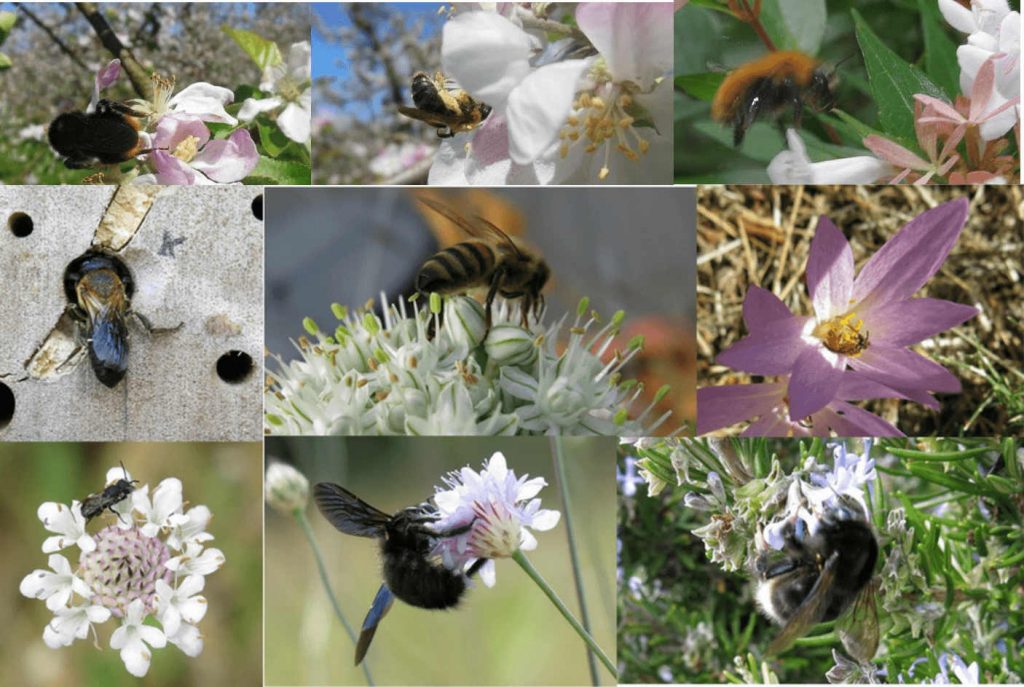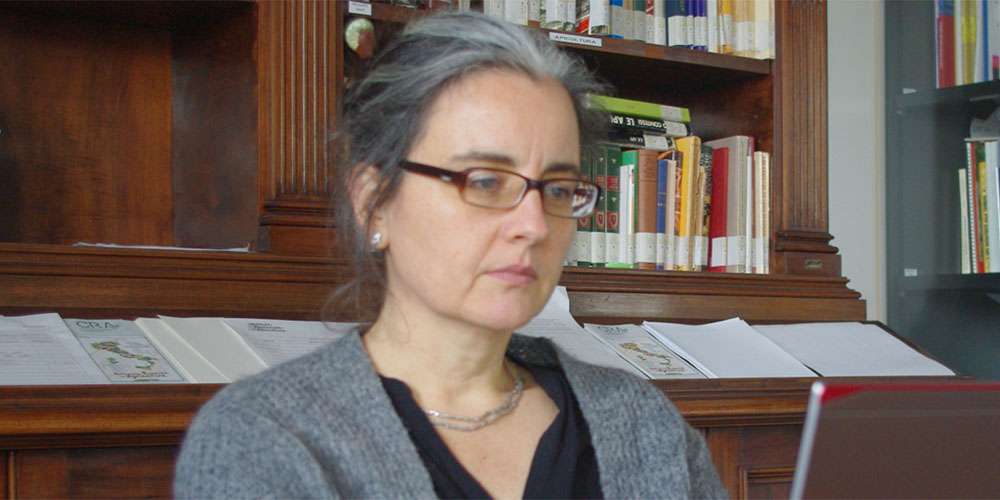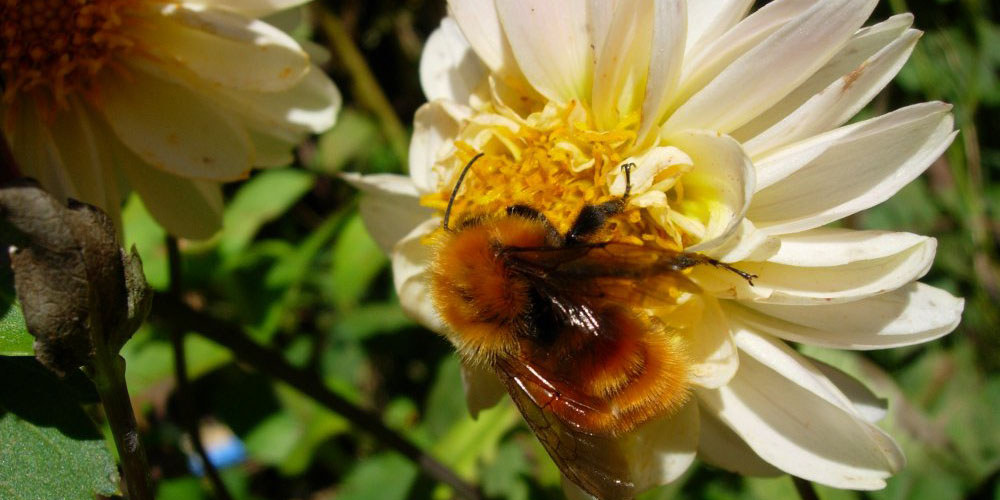The claim to “save the bees” is very strong these days. In principle, this is a good thing. I really appreciate that so many people are concerned about bees and biodiversity in general. Some weeks ago, somebody asked me why “the scientists” didn’t say anything earlier about biodiversity loss. Well, we did. Already Humboldt talked about the consequences of intensive land use, climate change and biodiversity loss. I’m really glad that, finally, people are listening and not ridiculing this anymore. At least not that much.
However, everything has two sides, even good things. The larger awareness sometimes leads to blind actionism and overly simplifying. You know by now how much I dislike simplifications. People are starting with beekeeping, convinced that they’re helping to “save the bees”. And sometimes doing more harm than good. Bear with me for a while, I’ll try to explain.
“The bee” doesn’t exist
Recently, “the bee” was declared “the most important species in the world”. This is wrong at so many levels that I couldn’t ignore it. To begin with the most obvious point: there are more than 20,000 bee species in the world, it’s obvious that “the bee” doesn’t exist. It reduces thousands of species to a single one, usually meaning European honey bees, Apis mellifera. Obviously, all bees have something in common: they are pollinators, get all their nutrients from pollen and nectar. Really? No, there are exceptions even to that, carrion-eating bees. Yes, savour that for a moment. Though they behave more like their unloved cousins “the wasps” (which also don’t exist), they’re bees.
But before I get side-tracked into the wonders of evolution, let’s get back to “the bee”. Are these tropical carrion-eating bees represented by European honey bees? Obviously not. Neither are red mason bees, buff-tailed bumblebees or any other bee species. They may have similar eating habits like honey bees, but their life-histories are completely different. A. mellifera is even different from their closest relatives, other honey bee species. There are even differences within European honey bees, depending on the subspecies. But I don’t want to get too far into this either.
“The most important” doesn’t exist
Fortunately, I was sitting when I first heard about this nonsense that “the bee” is “the most important animal species”. Whenever I hear such a classification, I wonder how the people claiming this concluded such a thing. Are there data? Studies? At least some observations? Being centred on data may be part of a professional deformation, but critical thinking isn’t. That’s an essential life skill, in my opinion.
So, what does “the most important” mean in this context? I’m definitely convinced that bees are important, independent of their species. However, this morning I listened to an absolutely fascinating radio program on dung beetles. Are bees more important than dung beetles? No, they aren’t. “Important” is a totally human classification, not a biological term. Every species is “important” as part of the food web and has its own ecological niche. It’s completely arbitrary that the internet is full of “save the bees!” and not of “save the dung beetle!” (“the” dung beetle doesn’t exist, you may have imagined already…).
From a charity evening to bold statements
Looking for the origins of this nonsense, I found that it was the result of a charity evening already in 2008. Five scientists engaged in an “irreplaceable species battle” during an evening organized by Earthwatch. It was a fun event, not something scientific. Which is totally fine, I hope Earthwatch got many donations for their work that evening. However, though “the bee” won against “the plankton” (which… ok, you know by now), this doesn’t mean bees are more important than plankton. I’m convinced none of the scientists participating in this “battle” would have said such a thing.
I didn’t discover the source why this “the bee is the most important species”-nonsense came up again. I first read it in a tweet (that I don’t find anymore), then in a LinkedIn post. The latter paired with that famous “Einstein” quote. I won’t go into that today. However, it’s out there again and I don’t really care why. It’s simply wrong.
Beekeeping to “save the bees”?
You may wonder why I get so upset about this. Isn’t it a good thing that people care about bees? That they start beekeeping because of this, which makes them engage with nature? Well… yes. Wait… no. It’s not that easy. Actually, both the number of beekeepers, as well as number of bee colonies, is increasing worldwide. Honey bees definitely aren’t endangered. They struggle on multiple levels, with diseases, pesticides, bad management practices etc. But their abundance increases, as you see from the FAO data in this graph:

Some of the new beekeepers really learn about bees, they discover them by starting with managed honey bees. Others, and these bother me, think that it’s just enough to get a honey bee colony and leave it alone. It’s natural, right? No, it’s not. As with everything, you have to know what you’re doing. Honey bees aren’t “wild animals” anymore, they’re managed. An apiary isn’t natural, honey bee colonies wouldn’t be so close to each other in nature. This favours the transmission of diseases.
In the best case, by not managing honey bee colonies adequately, you just kill your own colonies. Which is already bad enough, in my opinion. It gets worse if honey bee colonies from a neighbouring beekeeper get infected with foulbrood, which is highly contagious. Or infested by masses of varroa mites after treatment, because a “natural” beekeeper didn’t treat against this parasite.
Other bee species are struggling
In addition to neighbouring honey bee colonies, bad beekeeping practices endanger other bee species. Some honey bee diseases threaten also bumblebees and solitary bees. Diseases like Deformed Wing Virus or Nosema ceranae are transmitted by common flower visits. We don’t know much about other diseases and about the extent of the impact on wild bee species or other insects. This is kind of contrary to “save the bees”, isn’t it?
However, contrary to A. mellifera, many bee species are declining. In Germany, more than half of the wild bee species (including solitary bees and bumblebees) are endangered. The situation of many other insect species isn’t much better. Dung beetles, wasps, hoverflies – many of them are struggling. If we really want to save biodiversity, “save the bees”, starting beekeeping isn’t the right answer. This is much more complex and includes protecting and restoring habitat, making agriculture more sustainable, finally trying to stop global warming… and so much more.
If you want to start beekeeping, go for it. It’s a wonderful activity, with the benefit of your own honey and being outside. Learn how to do it the right way. In case you still want to do something for bees beyond beekeeping, figure out at what level you can contribute. Is it an insect-friendly garden? Talking to people about bees? Engaging in associations for nature conservation? Getting into politics? At every level, you could do something for bees. But beekeeping, I’m afraid, isn’t the way to go.



